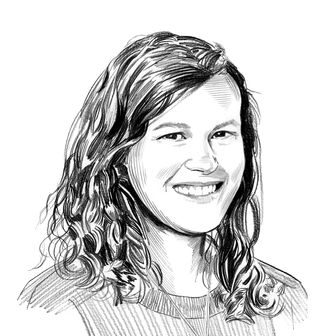
Feminist author and Guardian columnist Jessica Valenti has secured her latest book deal: She told the Cut that her fifth book, Sex Object, out next spring, will be a memoir focused on her own sexual experiences. For Valenti, whose previous books include Full Frontal Feminism and The Purity Myth, memoir writing is somewhat new territory. “It’s a book I’ve been thinking about for a really long time,” she said. “Even though I write about political issues for the most part, and that’s what I’m known for, I’ve always drawn on the personal when I’ve written about feminist issues.” She spoke with the Cut about the ways women are judged for writing about personal experience and why now feels like the right time for her to do just that.
So, you’re writing a memoir?
Yes. I guess the short version is that it’s a memoir about growing up in a culture that values women based on whether or not they’re sexy, but hates them for having sex. And, more broadly, my experience of trying to find my humanity and sanity in a culture that doesn’t really see women as full people. My sexual experiences, good and bad, frame a lot of the book — but it’s also about feeling like an object in other ways. There’s going to be some stuff about my experience having my daughter and feeling objectified when I was at the hospital, so there’s more there. I’ve always been interested in issues of sexual objectification and what that does to us, not just in the broad political sense, but also what it does to us on an everyday basis — what the dissociation and craziness that women feel from living in a culture like this does to our mental health.
How did your sexual experiences factor into your own developing consciousness around feminism?
Tremendously. That’s what led me to write The Purity Myth, really, was my experience learning about that double standard head-on — being in high school and being called a slut because I was sleeping with my high-school boyfriend, when there were tons of guys who were having sex and no one thought any less of them. I don’t think that’s unusual. I think a lot of women feel that their sexual experiences, good or bad, inform their feminism because it informs the way you think of the world and where you fit into the world.
Do you have any anxieties about writing about your sex life?
Not really. I feel like at this point I’ve been writing publicly for ten years. I’ve been called every name in the book. Not a day goes by that someone doesn’t attack me for something. I feel like I did wait this long to write something like this, though, because, one, I hate the idea that women are only listened to when they’re talking about sex, and, two, I think as a culture we tend to view women’s experiences and women’s memoirs, especially when they’re about sex, as frivolous or unimportant. That really bothers me. I reject the idea that our experiences, and our sexual experiences, aren’t important.
I remember a few years ago, Katha Pollitt wrote an amazing book of essays called Learning to Drive. There were a couple of essays about sex, and the New York Times book review was horrible, like, “She’s airing out her dirty laundry, and isn’t this disgusting?” She got the most vile book review, and you don’t see that with men’s stories about sex, or men’s memoirs. They’re brave and bold, whereas women are [viewed as] dirty and gross and wanting attention. I think that’s also why I want to write this book now. I feel like we’re in a really important moment for women’s storytelling, where the idea that women’s stories are frivolous or self-involved is getting turned on its head.
In your review of Lena Dunham’s memoir, you expressed disappointment that the way she described some of her own sexual experiences didn’t feel entirely candid. Is that something you’re conscious of now that you’re writing your own memoir?
That’s a really scary question. I would probably say that now having had the experience of starting to actually do this work, I have a bit more empathy, and I might backtrack that sentiment a bit. We can only share as much as we’re comfortable sharing, and we can only be as open as much as we’re comfortable being open. I think that women so infrequently have the power to create our own narratives that, when we do, we should use it in any way that we want to. So I’ve sort of come along on that idea. But I have to say, being super candid has never been a problem for me, so it’s not something I’m worried about.
How did you decide on the title Sex Object?
I went back and forth on the title a lot. I liked the idea of a title like Sex Object: A Memoir because I thought it was funny and cheeky but also sad and depressing. My husband pointed out that people might be critical, like, “Oh, you think you’re so sexy.” But the thing is, “sex object” is not a compliment. I would like to be a person, not an object. This is not something I would like to call myself, but I think it’s an identity that is forced upon a lot of us.


